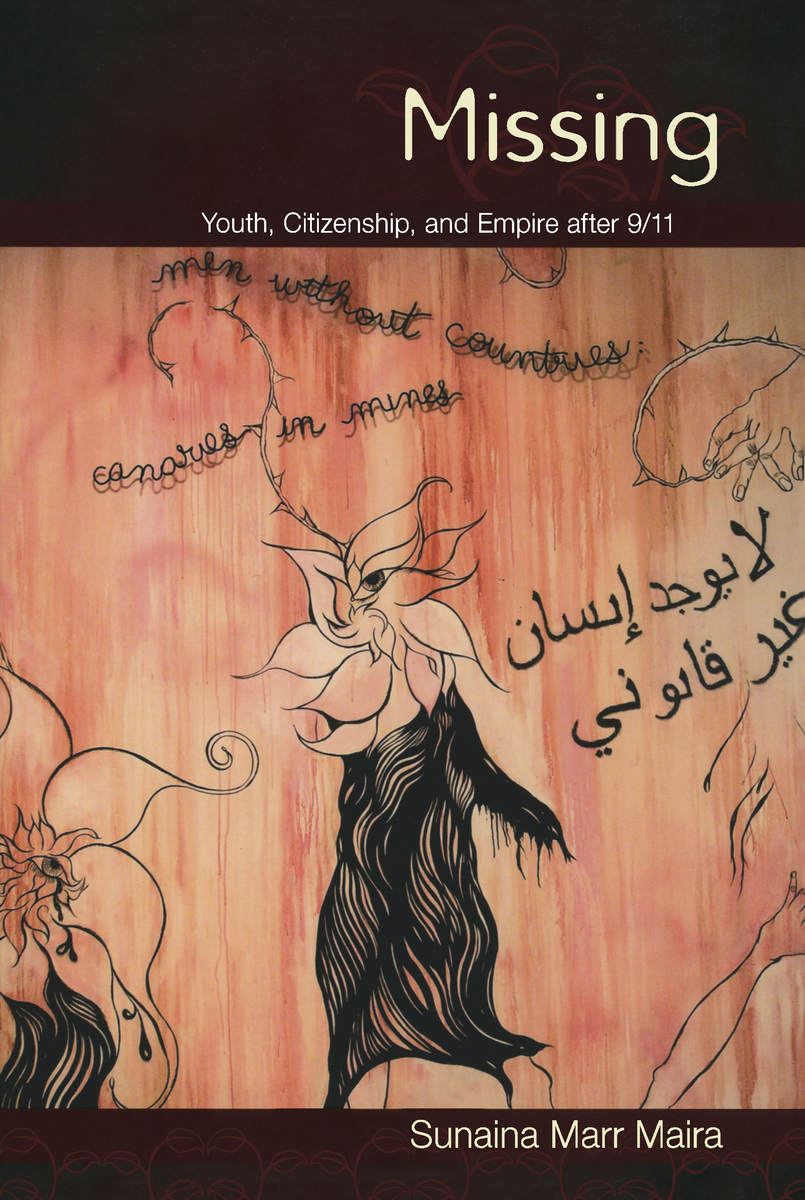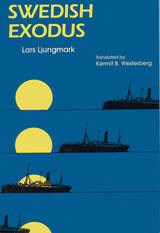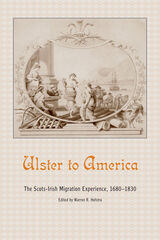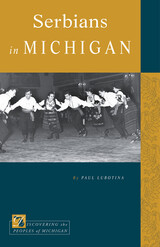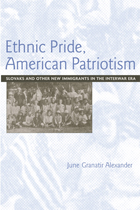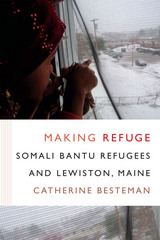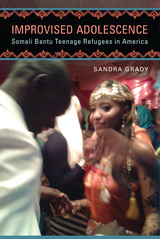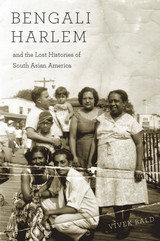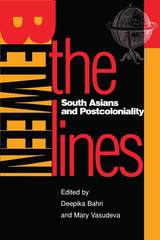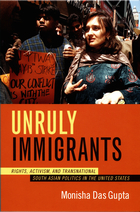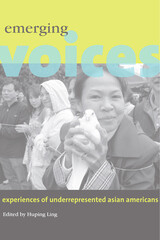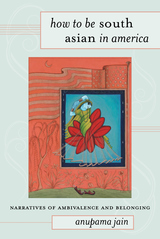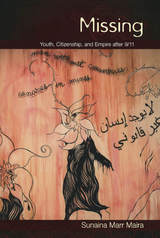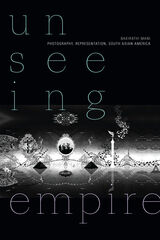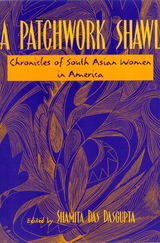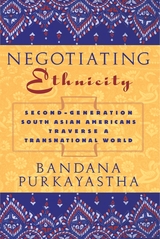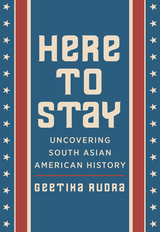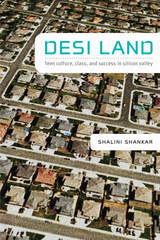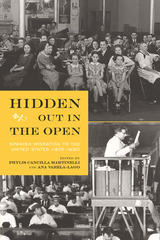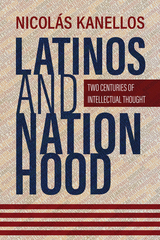“There are no easy answers in Missing, but Maira offers a nuanced language for understanding what citizenship and dissent mean to these young people during the War on Terror. . . . Missing is impressive for the depth of its analysis of the lives of South Asian Muslim immigrant youth. . . .” - Matt Delmont, American Quarterly
“Basing her analysis on ethnographic research, the author captures the sense of disappointment and bewilderment of her informants caught in a double bind while trying to construct an identity that would make them feel secure in the turmoil of this post-911 world. Maira interprets individual representations in light of policy and macro analysis of empire. She shows how nation-state policies influence individual lives in a way that contributes much to the confusion about status and rights experienced by South Asian immigrant Muslim youth.” - Ibrahim G. Aoudé, Teachers College Record
“[Missing] provides rich mining grounds to scholars from fields as wide as postcolonialism, cultural studies, sociology and history. In that sense, despite its socio-anthropologically empirical structure, it is a trans-disciplinary book. . . . This is a brave, honest and necessary study.”
- Tabish Khair, South Asian Diaspora
“Missing: Youth, Citizenship, and Empire after 9/11 is a timely and important contribution to study of life in the post–9/11 United States for Muslim, South Asian, and Arab communities, in general, and for Muslim immigrant youth in a New England high school, in particular. Engaging deeply and comprehensively with theories of empire, race, and cultural citizenship, the author uses richly textured ethnographic material drawn from school, work, home, and protests to chart the different practices and meaning of cultural citizenship in the everyday lives of young people here and in the countries their parents left behind.” - Susan Terrio, American Anthropologist
“Maira’s book Missing is a beautifully written analysis, dense with theory and facts. . . . I predict that Maira’s unique study will come to influence many researchers in their ethnic studies.“ - Hedvig Ekerwald, Ethnic and Racial Studies
“How is national belonging experienced by South Asian teenagers in post-9/11 America? In a deeply thoughtful and compassionate ethnography, Sunaina Marr Maira explores this question, providing one of the most compelling analyses of citizenship in contemporary America. She introduces us to young people who worry about deportation, racism, and the challenges of schooling in another language, but who also possess an acute analysis of imperialism and are capable of forging a transnational community united as much by Bollywood as by their sudden elevation to Public Enemy Number 1. Maira’s stunning achievement is to give vivid content to state power, providing an up close and personal look at how it is lived and resisted by those whom we relentless evict from political community.”—Sherene H. Razack, author of Casting Out: The Eviction of Muslims from Western Law and Politics
“Sunaina Marr Maira has authored one of the most important books of our time. Missing is a carefully researched and beautifully written account of the experiences, ideas, and opinions of South Asian Muslim immigrant children in the United States who find themselves deemed enemies of the state through no fault of their own in the aftermath of 9/11. Through a deft blend of ethnography and cultural critique, Maira demonstrates how the expanding reach and power of the nation-state overseas leads to new forms of disciplinary control at home: in schools, workplaces, media imagery, and immigration law.”—George Lipsitz, author of Footsteps in the Dark: The Hidden Histories of Popular Music
“Missing: Youth, Citizenship, and Empire after 9/11 is a timely and important contribution to study of life in the post–9/11 United States for Muslim, South Asian, and Arab communities, in general, and for Muslim immigrant youth in a New England high school, in particular. Engaging deeply and comprehensively with theories of empire, race, and cultural citizenship, the author uses richly textured ethnographic material drawn from school, work, home, and protests to chart the different practices and meaning of cultural citizenship in the everyday lives of young people here and in the countries their parents left behind.”
-- Susan Terrio American Anthropologist
“[Missing] provides rich mining grounds to scholars from fields as wide as postcolonialism, cultural studies, sociology and history. In that sense, despite its socio-anthropologically empirical structure, it is a trans-disciplinary book. . . . This is a brave, honest and necessary study.”
-- Tabish Khair South Asian Diaspora
“Basing her analysis on ethnographic research, the author captures the sense of disappointment and bewilderment of her informants caught in a double bind while trying to construct an identity that would make them feel secure in the turmoil of this post-911 world. Maira interprets individual representations in light of policy and macro analysis of empire. She shows how nation-state policies influence individual lives in a way that contributes much to the confusion about status and rights experienced by South Asian immigrant Muslim youth.”
-- Ibrahim G. Aoudé Teachers College Record
“There are no easy answers in Missing, but Maira offers a nuanced language for understanding what citizenship and dissent mean to these young people during the War on Terror. . . . Missing is impressive for the depth of its analysis of the lives of South Asian Muslim immigrant youth. . . .”
-- Matt Delmont American Quarterly
